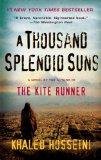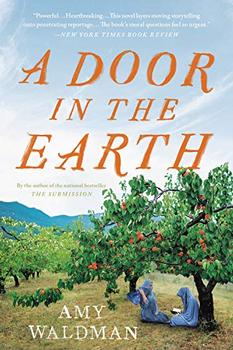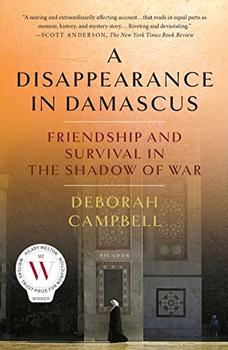Summary | Excerpt | Reading Guide | Reviews | Beyond the book | Read-Alikes | Genres & Themes | Author Bio

Unsurprisingly, A Thousand
Splendid Suns, Khaled Hosseini's follow up to
The Kite Runner, has received very wide
review coverage. You'll find reviews from about a
dozen different critics at BookBrowse (as always
abbreviated to the reviewer's essential opinion to
avoid both plot spoilers and repetition). Some
critics love it, some are lukewarm, but even those
who write less than glowing reviews have to admit
that, whatever Hosseini's literary weaknesses might
be, he does write very compelling storylines and is
indisputably one of the world's nicer human beings.
Having viewed Afghanistan through the lives of two
men in The Kite Runner, Hosseini turns his
attention to the lives of two women whose stories
start at very different points but converge about
half way through the book, at which point the tale
starts to take on a real sense of momentum and
authority.
A Thousand Splendid Suns is a more ambitious
novel than The Kite Runner, with a wider and
deeper historical and cultural scope that
illuminates the last three decades of Afghan history
during which the country has been inflicted by coups
and counter-coups, an anti-Soviet jihad, civil war,
warlord and Taliban tyranny, and post 9/11 conflict.
What makes it so approachable are its universal
themes of love, friendship, betrayal and redemption
that affirm the humanity of ordinary Afghans while
revealing the horrors of the society they live in.
Because of recent events almost all of us are more
familiar with Afghanistan than we were a decade ago, but it is difficult to feel a connection
with a place that we know only through news reports.
A Thousand Splendid Suns gives us a window
into the heart and soul of the ordinary Afghan
people while condemning the governments and groups
that have brought the country to its knees, enabling
us to imagine how we would react if the wheel of
fate had placed us in the position of one of the
book's characters.
Cynical readers may find A Thousand Splendid Suns
a little too melodramatic and sentimental for
their tastes. However, what redeems these elements
is that, when viewed individually, nothing that
happen to Mariam or Laila is implausible in a
society that places women so low in the pecking
order; where oppressive cultural mores ensure that,
however lowly a man's status might be in the
community, he can be a despot in his own home.
This reviewer started off cynical but was entirely
won over by the end - starting the book in the
evening and waking up before dawn to finish it,
reading by fading flashlight as the sun rose and the
pages blurred through the tears.
More Information
If you want to know more about the lives of
women in Afghanistan, read
Veiled Courage, an inspiring book
about the Revolutionary Association of the Women of
Afghanistan (RAWA),
whose clandestine activities defied the forces of
the Taliban and who continue their work in
Afghanistan today supporting projects in schools,
orphanages, hospitals, providing literacy programs,
food distribution and more.
Another charity that helps people in Afghanistan and
Pakistan is Greg Mortenson's
Central Asian Institute which builds schools in
rural parts of both countries. Read his inspiring
story in
Three Cups of Tea.
Another well reviewed book is
Kabul in Winter (2007) by relief worker
Ann Jones who reports that an estimated 95 percent
of women in Kabul are victims of domestic violence.
If you've been considering reading The Kabul
Beauty School, or have read it and are
planning to recommend it to others, please first
read this
news story.
For more about Khaled Hosseini and his books,
see his
biography at BookBrowse, and the two separate
interviews in which he discusses The Kite
Runner (2003) and A Thousand Splendid Suns
(2007); his experience growing up in Afghanistan
before the Soviet invasion and the rise of the
Taliban; the role of women in Afghan society; how
Afghans view the USA, and much else. We also have
reading guides for both books.
Did you know?
The title of A Thousand Splendid Suns
comes from a poem about Kabul by Saib-e-Tabrizi, a
seventeenth-century Persian poet, who wrote it after
a visit to the city left him deeply impressed.
Hosseini is a US goodwill envoy to the United
Nations Refugee Agency (UNHCR) and is presently
working with the organization on the
Aid Darfur campaign. He hopes that his future
work with the agency will take him to Afghan refugee
camps in Pakistan.
A movie based on The Kite Runner was filmed
in China in 2006 and released in 2007. A
movie based on A Thousand Splendid Suns is
scheduled for release in 2009.
![]() This review was originally published in The BookBrowse Review in June 2007, and has been updated for the
November 2008 edition.
Click here to go to this issue.
This review was originally published in The BookBrowse Review in June 2007, and has been updated for the
November 2008 edition.
Click here to go to this issue.

If you liked A Thousand Splendid Suns, try these:

by Amy Waldman
Published 2020
For readers of Cutting for Stone and The Reluctant Fundamentalist, a "breathtaking and achingly nuanced" (Kirkus, starred review) new novel from the author of the national bestseller The Submission about the journey of a young Afghan-American woman trapped between her ideals and the complicated truth.

by Deborah Campbell
Published 2018
In the midst of an unfolding international crisis, renowned journalist Deborah Campbell finds herself swept up in the mysterious disappearance of Ahlam, her guide and friend. Campbell's frank, personal account of a journey through fear and the triumph of friendship and courage is as riveting as it is illuminating.
Winner of the Hilary Weston ...
Your guide toexceptional books
BookBrowse seeks out and recommends the best in contemporary fiction and nonfiction—books that not only engage and entertain but also deepen our understanding of ourselves and the world around us.